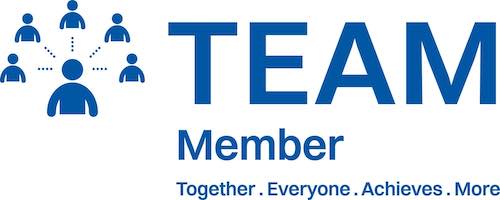Writing A Personal Statement - That Actually Reflects Who You Are

THE IMPORTANCE OF WRITING A PERSONAL STATEMENT –
THAT ACTUALLY REFLECTS WHO YOU ARE.

Writing up your CV to ultimately impress an individual or an organisation is clearly of importance, we want to fill the pages with our experience, education, knowledge and more, but often the smallest paragraph – the one right at the top of the page is rushed and sometimes full of cliches that we believe people want to read, rather than a true perspective into who we are, what our core values are, our personal expectations, and what we have to offer a future employee.
Our skills, education and experience are of course of value to the reader, and as much time and thought needs to go into completing this information, however, you will not be the only candidate applying, you may not even have exactly the ideal criteria for the role you are applying for, but THAT PERSONAL STATEMENT, is exactly that, it is PERSONAL, it is an introduction into you, who you are, what you stand for and where you want to go in your career. An employee, maybe convinced about you literally by reading this statement alone, that is the power it can have.
LET’S START AT THE BEGINNING – WHAT IS A PERSONAL STATEMENT?
A personal statement is a succinct summary that outlines your specific attributes and experience, whilst summarising your skills and personal aspirations. {If you are considering going to university, you will require a personal statement as part of your application}. It is an effective tool to convince recruiters that you are the ideal fit for the role, highlighting your strengths and sharing your career goals. It is essentially a quick description whereby you can excite and attract your potential employer to pay close attention to your detail’s vs other candidates.
WHAT SHOULD I INCLUDE IN MY OPENING STATEMENT?

There’s no set rule as such but it is a good idea to think about keeping it to approximately five sentences, so a good idea is to think about breaking it down into three sections, who you are, what you have to offer, and your career aims. It is also good to consider writing a personal statement related to the role you are applying for, so don’t hesitate to amend it accordingly.
INTRODUCING YOURSELF:

Your main CV will confirm your education and work history, so use this opportunity to introduce yourself as a person, it’s a great way to let a potential employer get an insight into your character, and if you haven’t had much work experience to date, it is a great way to sell your personality and key attributes.
“To me business is not just about buying and selling: it is about the interaction between people, the innovation, the knowledge, and determination to be a success. I believe I am a hardworking, driven individual with a natural flair for…”
WHAT CAN YOU OFFER:

This is the time to sit down, read about the company you are applying for and then ask yourself why you are suited for the role and the company. If you feel you are lacking in the education they need then focus on your practical experience or vice versa.
Conclude your personal statement by highlighting your career aspirations for example – “I am seeking an opportunity to progress my career in a target driven and progressive company, whereby I can utilise my current experience, as well as learn and grow”.
Remember to keep your opening statement consistent with the rest of your CV formatting and the content within. Also consider the voice you use, you can write in the first or third person, but ensure you maintain one or the other.
STAGES OF A PERSONAL STATEMENT

School Leaver Example:
“I am a highly motivated, hardworking individual and recently achieved high grades in my A levels. I am seeking an exciting opportunity to start my career within marketing. My career goal is to become a Marketing Manager within a successful and aspirational company.”
University personal statement
A personal statement for a university application is a much more detailed introduction – and longer than the one you write for a job application. Prior to writing your statement consider the following
- Review the description of the course and identify your personal qualities, skills and experience that are relatable to the contents of the specific degree you would like to apply for.
- Explain why you’re applying – including your ambitions, as well as what interests you about the subject.
- Think about what makes you suitable – this could be relevant experience, skills, or achievements you’ve gained from education, work, or other activities.
- Include additional experience, such as achieving Duke of Edinburgh awards or Young Enterprise etc, as well as any volunteering you may have done. Any clubs or societies you belong to – sporting, creative, or musical.
- If you took part in a work placement or have had any additional experience whereby you feel you have evolved as a person.
Graduate personal statement
Obviously once you have graduated, your personal statement will change again. It will be much shorter than your university application statement. You can now pay extra attention to the specific projects and course modules you studied during your higher education and what you feel you have achieved on a personal level.
Explain why you are applying for the role and where you see your career path taking you, alongside your skills, and knowledge. If you had a year out in industry during your degree course, it is great to explain how you grew during this experience too. It is good to talk about what has inspired you to work in a particular industry and why you have selected this profession. Showing a passion for an industry indicates a willingness to progress and a drive to learn.
Career change personal statement
Many people reflect on their career choices and with a change of circumstances or personal preferences take time to learn new skills and choose a different career path.
If you have made the decision to change industry completely then you need to consider what are your transferable skills and how they will be applicable to the new sector you are looking to move into.
Consider any targets you have achieved and demonstrate these successes, focus on your achievements, and explain the impact they had, this will show you can add value to a company and have the key attributes to reach personal goals and hit company targets.
“As an experienced marketing manager, I have a creative and proactive approach to my work. This has resulted in achieving multiple industry awards for product launches and resulting in high market share. I have developed excellent networking skills alongside my team management capabilities. After seven years in Marketing roles, I am currently seeking a new challenge to utilise my meticulous attention to detail and ability to deliver on key projects.”
IN SUMMARY
Don’t worry about writing your personal statement, crafting a winning personal statement should take time to put together, especially if you have not written one before. Consider the structure of how to set out your statement, and your reasons for connecting with the organisation you are sending your details to.
You can always edit your statement for every role and career stage you are focussing on – it’s a good idea to review and refresh it on a regular basis, so you can amend it accordingly.
Remember you are unique and that’s exactly what should shine through. Here are some guidelines for you to follow, but remember your personal statement needs to be ‘personal’.
- Come across as enthusiastic and natural
- Write a concise statement and do not over complicate it
- Stand out for the right reasons, be careful with the language you use and the tone you express
- Structure your information so it reflects skills, experience, and your personal qualities
- Incorporate your education, and highlight any specific areas that may benefit your application e.g., tools you may be adept at using SAGE/Payroll/CRM etc.
- Proofread aloud and get someone to read through on your behalf. Then redraft it until you’re happy with it, and the spelling, punctuation, and grammar are correct.







